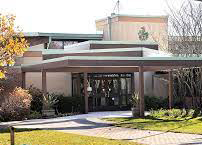
For some, the new year means resolutions, diets, workouts or turning over a new leaf. For me, perhaps because I’m a details person, January means ensuring that household services continue to arrive and that I’m living up to annual commitments. Among them, as usual, I stopped by the Township office to pay the annual licence fee for our dog, Jazz. The clerk said the past few years Uxbridge has contracted that service out to Docupet, an online service in Kingston.
“That’s fine,” I said, “but I’d prefer to pay you.”
“It’s easier if you go online,” she said.
“Maybe, but if I pay you locally, in a way I’m ensuring you keep your job.”

I’ve always maintained that the best customer service happens face-to-face. I’ve often written in this column about the erosion of that human contact in modern society. It may be more convenient to sit at a computer to conduct your day-to-day business.
But certainly the past few years of the pandemic have shown how remote communication – wireless bill payment, Uber booking, artificial intelligence (AI) substitution and online ordering – have become so faceless. It may be simpler to deal with the world from the palm of your hand, but it’s also ruined our social skills if not dehumanized us completely.
I truly believe that a small community survives – indeed thrives – when people in both the civil service and the private sector keep storefront operations functioning.
I’m sure everyone remembers how we all flocked to the ease of Zoom when COVID-19 arrived in March 2020, just under four years ago. When medical science told us to self-isolate, wireless science showed us we could have the next best thing: artificial face-to-face contact with family, friends, coworkers, business associates and educators.
The Ontario government told us that online education was the best thing for our children – keeping them safe while keeping them tuned into their studies via the Zoom classroom. History proved that it did neither. The technology intimidated Ontario students and worse, it made them social misfits.
“Our brains were not actually designed to work that way, to learn things through two-dimensional screens for hours on end,” Marjorie Robb, at the Children’s Hospital of Eastern Ontario, told the Toronto Star last year.
In other words, by taking away human contact, she said we create a kind of social deficit in basic skills. “The skills for dealing with people (on a screen) are not the same as the skills you develop by being with with real people in real time.”
Long before the pandemic, and indeed as a general rule, I’ve always tried to make the effort to see and listen to people I deal with in person, rather than rely on a voicemail, a text or an online link. I remember when I first applied for a car loan and a mortgage back in the 1970s. I knew that I could make a more convincing argument for my reliability (or in financial terms “risk aversion”) in person rather than by correspondence or referral.
My theory (particularly when I was not working on salary but for freelance income) was to always give my banker a personality to relate to, not just a faceless account number. Even today, all these years later, I prefer to walk into my financial institution to make a deposit or withdrawal, as opposed to their preference that I use online banking.
Large organizations prefer online interaction to cut back on staff, reduce the number of bricks-and-mortar branches they need to maintain, and generally reduce costs. That’s why I never use automated checkout at the grocery store.
That’s why I’ll take the extra time to talk to service representatives on the phone – if they actually exist – instead of conducting my business by touch-tone dialing. Sometimes I’ll even catch myself texting when it makes more sense for me to walk to or call up a person and actually talk to them. Wireless is too often faceless.
This first week of January, I also dropped into the firehall to buy my open-fire burning permit. The receptionist greeted me, then asked me to fill in the form, and finally pay my fee by poking the application and payment through a slot in the protective glass between us.
When I did, she looked at the form, smiled and said, “That’s why I recognized you. I read your column all the time.”
“Thanks,” I said and I thought, if nothing else, we’ve put a face to a name. And that’s never a bad thing.